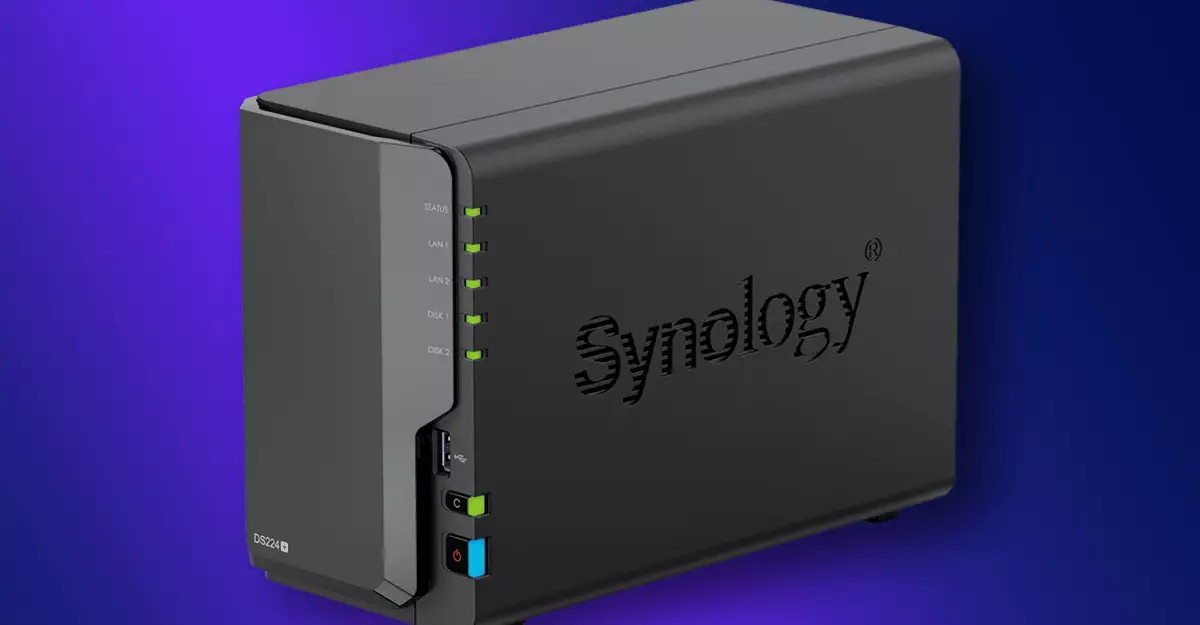The world of Network Attached Storage (NAS) has long been appreciated for its flexibility and adaptability, two qualities that make it a favorite among tech enthusiasts and general consumers alike. However, Synology, a leading name in the NAS market, has recently announced troubling new restrictions concerning third-party hard drives that will be implemented in future models. While this change promises some benefits in terms of compatibility and reliability, it injects a significant amount of frustration and concern into the user community, especially for those who are accustomed to a more open and varied ecosystem.
Currently, existing Synology NAS systems will not be impacted by these forthcoming policies, a fact that offers a small glimmer of hope for users who already own these devices. However, with the Plus Series models launching in 2025, users will face limitations requiring them to use only Synology-branded drives or drives certified by the company to experience full functionality. This is a marked shift from the more lenient practices of the past, which allowed for a broader selection of hard drives to be utilized, giving customers the freedom to choose options that better fit their budget and needs.
The Fine Line Between Reliability and Restriction
Synology asserts that these changes are rooted in plenty of internal research and testing. The company’s justification emphasizes that using drives following a rigorous validation process can result in lower risks of failure and improved compatibility. It’s a point that cannot be easily dismissed; after all, a reliable NAS device that safeguards data is paramount in a world increasingly reliant on digital storage. In theory, tighter control over hardware compatibility could lead to less downtime and greater data integrity.
However, this rationale comes with significant drawbacks, chiefly the reduction in consumer choice. Those who purchase newer Synology devices will inevitably find themselves at the mercy of limited options when it comes to hard drive selection, a reality that likely drives up costs. Budget-conscious consumers specifically may find this transition especially jarring, as the market for third-party drives typically offers less expensive alternatives that could meet their storage needs without breaking the bank.
A Look at Consumer Sentiment and Industry Standards
Reaction to Synology’s announcement has so far leaned toward disappointment. Many tech users appreciate the brand’s quality and reliability, but they are equally anxious about the narrower landscape for future drives. Researchers and analysts often argue that while warranties and support from certified drives are indeed seductive selling points, they come at the cost of a vibrant market, where innovation and competitive pricing usually prevail.
The landscape of technology has often shown that restricting customer choices can backfire. Companies like Apple and Microsoft have faced scrutiny when they attempt to close off their ecosystems, taking the nuanced approach of providing extensive support but with significant cost implications. While Synology may avoid outright punitive measures like those seen with software lockouts of third-party components, the risk of alienating a segment of its customer base remains tangible.
Innovating in Constrained Spaces
In contemplating the implications of this new policy, it brings to light the evolution of consumer behavior in the tech industry. End users have become savvy, learning to navigate around restrictions and finding innovative solutions. Some may tap into an opportunity to form third-party certifications or new partnerships aimed at producing compatible drives, displaying the resilience of the tech community.
Moreover, as Synology’s future models roll out and consumers weigh the pros and cons of the limited hard drive options, there may be a demand for transparent communication from the company about specific benefits users might gain from these changes. Engaging the user base in robust discussions about their needs and desires could foster a sense of community and loyalty that transcends the mere features of the devices themselves.
In the end, Synology’s restrictive measures may lead to an evolution in how users approach NAS functionality and storage. They are forcing a recalibration of what it means to store data securely and efficiently—one where adaptability has always been key, and one that elicits both concern and innovation among its dedicated user base. By challenging the norms of choice and the standard practices associated with hard drives, Synology may inadvertently open the door for new ways of thinking about personal and home network storage.


Leave a Reply